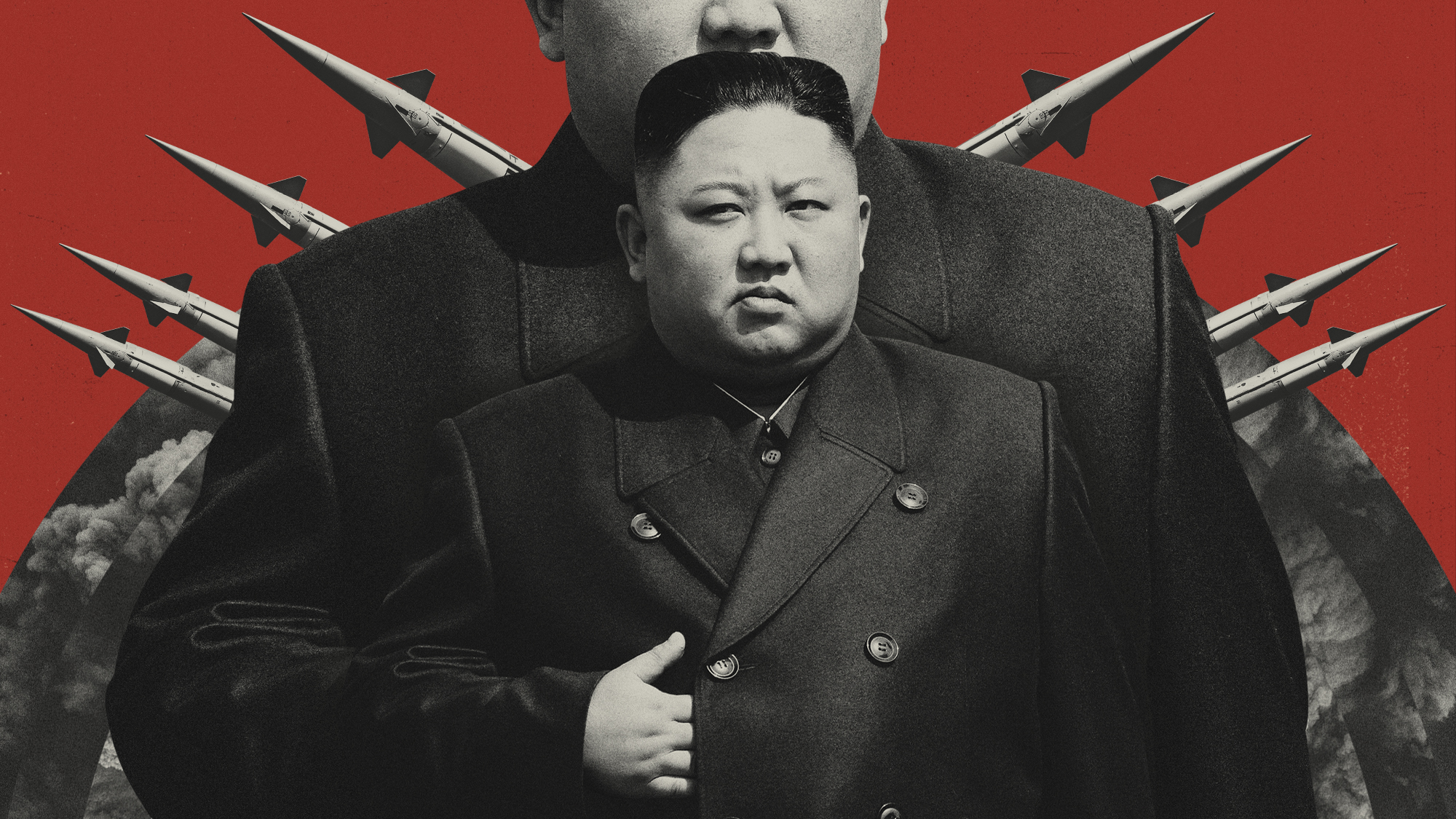Is war on the horizon in North Korea?
Kim Jong Un is ratcheting up the rhetoric. Some observers are concerned.


A free daily email with the biggest news stories of the day – and the best features from TheWeek.com
You are now subscribed
Your newsletter sign-up was successful
Kim Jong Un is rattling cages again.
The North Korean leader "could take some form of lethal military action against South Korea" in the near future, The New York Times reported, after engaging in a "pattern of provocations" and abandoning a long-held policy of trying to engage the United States diplomatically. Is a full-blown war imminent? Maybe not, but Kim "could carry out strikes in a way that he thinks would avoid rapid escalation."
Among the provocations: North Korea this week test-fired a new cruise missile — potentially capable of carrying both nuclear and conventional warheads — with several launches aimed toward the Yellow Sea. That came after Pyongyang ordered the destruction of the Arch of Reunification, a symbol of hopes for peace on the Korean peninsula. Newsweek reported that North Korea even released a series of propaganda posters with alarming slogans: "Let us destroy the U.S. imperialists and the clan of the Republic of Korea without mercy!"
The Week
Escape your echo chamber. Get the facts behind the news, plus analysis from multiple perspectives.

Sign up for The Week's Free Newsletters
From our morning news briefing to a weekly Good News Newsletter, get the best of The Week delivered directly to your inbox.
From our morning news briefing to a weekly Good News Newsletter, get the best of The Week delivered directly to your inbox.
Most importantly, The Associated Press reported, Kim earlier this month announced he had abandoned "the existential goal of reconciling with rival South Korea." That was a move that came as a shock, but was also the "inevitable culmination of years of building tension." And that has raised concerns. "Is Kim Jong Un about to take North Korea to war?" asked NBC News. It might seem like old news: "Threats and angry rhetoric" are an old family tradition for Kim. But some observers say his latest rhetoric goes beyond the usual posturing.
What did the commentators say?
"We believe that, like his grandfather in 1950, Kim Jong Un has made a strategic decision to go to war," Robert L. Carlin and Siegfried Hecker wrote at 38 North, a website that tracks developments on the peninsula. One reason is the failure of diplomacy. Kim met with then-President Donald Trump in 2019 — an unprecedented summit between the two sides — in hopes of achieving what his predecessors never could: Normalization with the United States. "When that failed, it was a traumatic loss of face for Kim." And that makes the situation unstable. "Pyongyang could be planning to move in ways that completely defy our calculations."
"There's another, more plausible explanation for the despot's behavior," Josh Rogin argued at The Washington Post. Kim's "real priority" is to build his relationship with Russian leader Vladimir Putin, who has been buying and using North Korean weaponry in the war against Ukraine. Raising tensions in Asia lets Kim "justify his use of North Korea's money and industry for its weapons business rather than feeding its people."
Harsh rhetoric from Pyongyang might actually be a way to get diplomatic attention, John Feffer suggested at Responsible Statecraft. This means Kim's provocations might be "perversely, a determination to restart peace talks with newly attentive adversaries." But some analysts believed the same thing about Putin as he threatened war against Ukraine in the waning months of 2021. The lesson? "Beware wishful thinking."
A free daily email with the biggest news stories of the day – and the best features from TheWeek.com
What next?
Whether or not war develops, Voice of America reported, Kim's belligerence — along with his growing ties with Russia — is proving "disruptive to Beijing's efforts to improve its relationship with Washington." And it complicates an already tender picture in the Pacific. "North Korea making trouble for the U.S. is in China's interest," said one expert, "as long as it does not get out of control and risk war that China does not want — at least not until China is ready."
In the meantime, officials in Washington and Seoul are downplaying the possibility of conflict, Reuters reported. War would be bad for North Korea, too. Count Sydney Seiler, a former U.S. intelligence officer, among the skeptics. "This," he said, "is not a country that is going to a war footing."
Joel Mathis is a writer with 30 years of newspaper and online journalism experience. His work also regularly appears in National Geographic and The Kansas City Star. His awards include best online commentary at the Online News Association and (twice) at the City and Regional Magazine Association.
